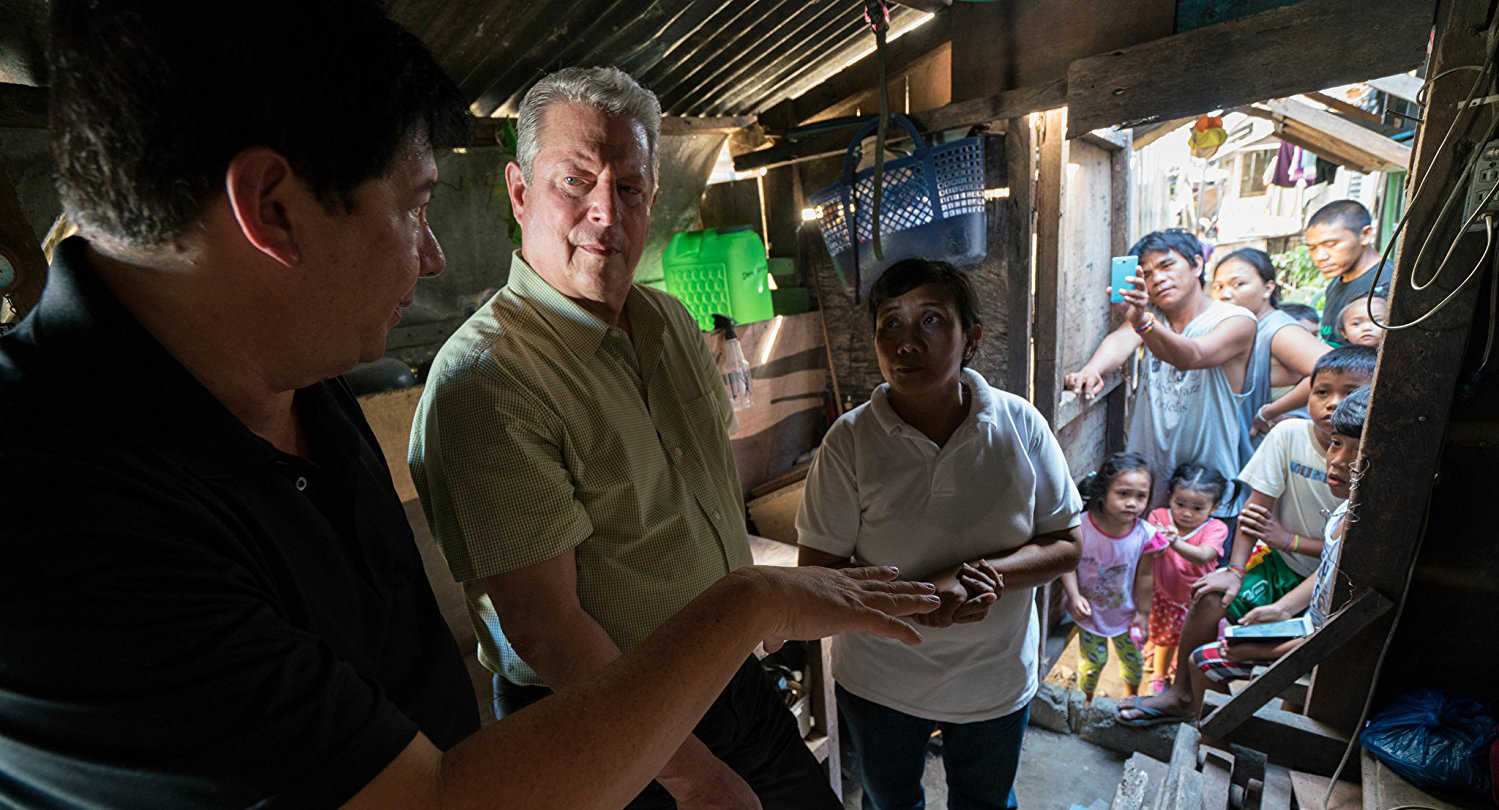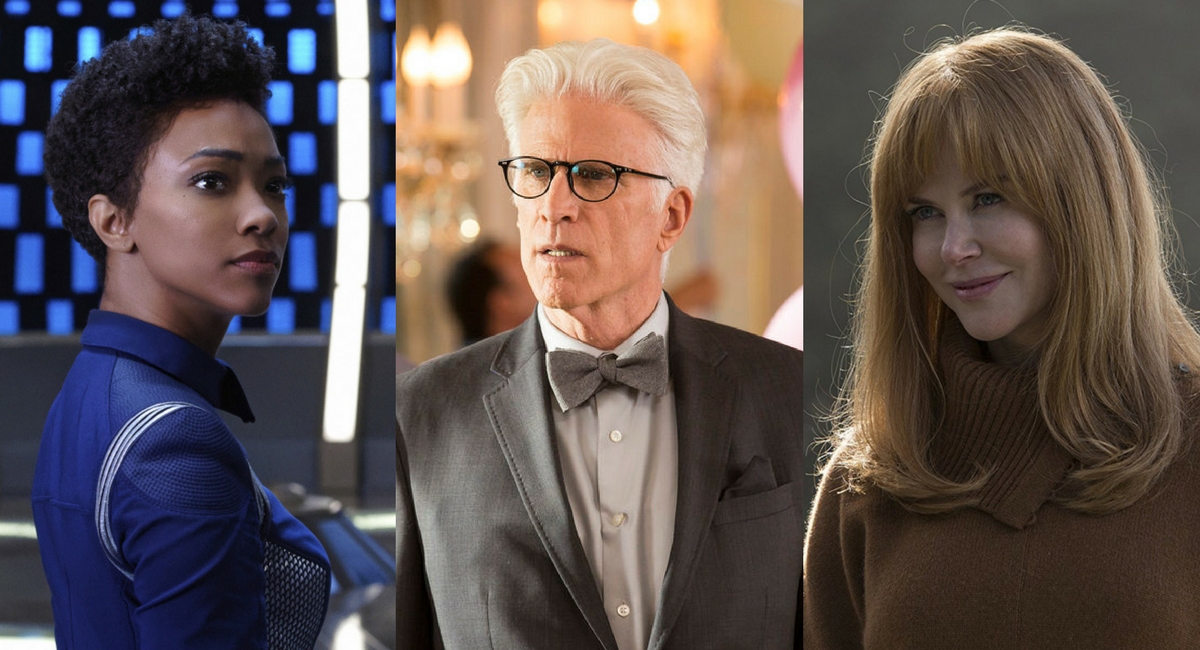Marvel’s The Punisher Review
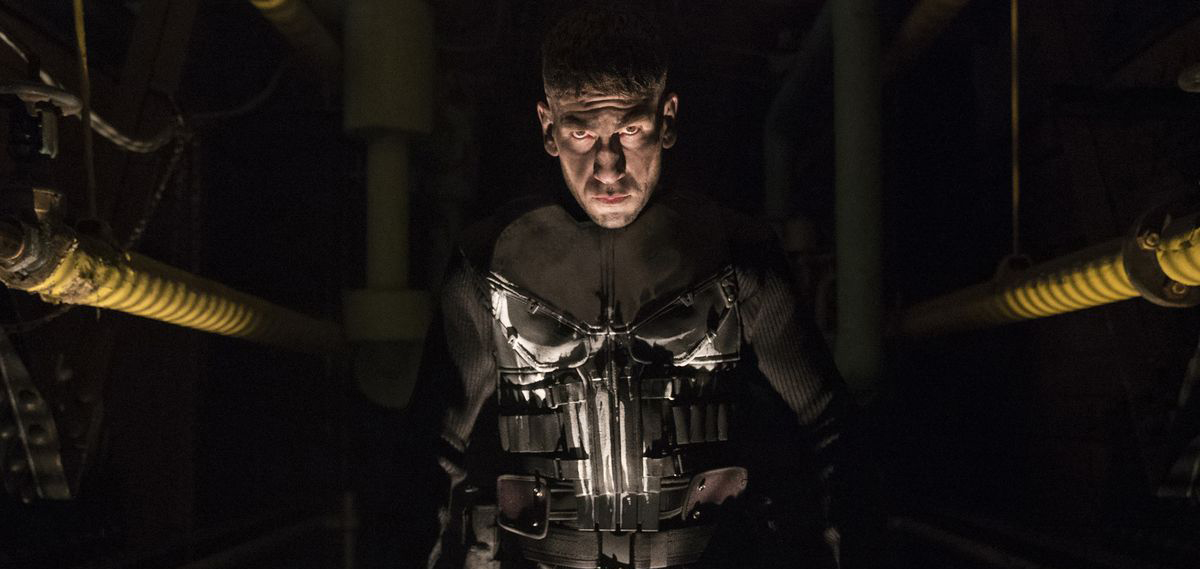
The first thought some may have upon seeing a ‘new’ review of The Punisher is that, well, it’s a bit late isn’t it? The show is three and a half weeks old, at time of writing, and in the context of today’s TV, that is old. On a personal level, it’s certainly longer than I usually take to get through Netflix shows, whether I’m planning to write about them or not. So why the wait?
The answer to that lies in the basic gambit at the core of the Netflix model, which is that the speed at which one watches what’s on offer – or rather, the length of time one leaves between one episode and the next (and the next, until suddenly the whole season is gone and you’ve got a year to wait) – is dependent on the particular show’s ability to keep you hooked, and coming back for more. Part of that, sure, is the classic nature of the cliff-hanger, leaving a thread dangling which, with the removal of the previously typical forced weekly interval between instalments, is only too easy for the viewer to pull. But a larger part of it is the story overall. The Walking Dead, as part of the ‘old model’, has seen viewership diminish and critical opprobrium rise, because all it’s got now is the cliff-hangers; the basic thrust and intrigue of the narrative has vanished. So at the heart of the Netflix idea is this same question: do I want to keep going here? Do I want to see more?
With The Punisher, time and time again, I found myself answering no. One slot at a time was quite enough to leave me thoroughly uninterested in this world. For a start, this world was so far detached from the world it was meant to be in, that it was hard to see the point in having a connected universe at all. Every single one of the Marvel Netflix shows has tested the breaking point of this deliberately, consciously standalone approach, but this was the point at which that approach actively endangered the story, because it wasn’t just completely disconnected from the bigger picture on the big screen, in which aliens crash landed in New York and large scale extra-terrestrial battles are now a regular occurrence, but was also, somehow, largely disconnected from the smaller picture, on the small screen, with almost no connection at all to any of the other Marvel Netflix shows.
The Punisher tried hard to be a show about a ‘real story’ – though quite how transferable its glossily aggressive take on PTSD and soldier mentality is to reality is up for debate – but did so by simply ignoring any sense of the world it’s set in. Rather than engaging with the setting – not even through Hammer Industries-type alien-infused weaponry as in Luke Cage – The Punisher decided to cast it all aside and give itself a clean slate of cliched tropes about clandestine military brotherhood. Yes, there was Karen Page, but just as with Claire Temple’s appearances throughout the Defenders shows, her role was both fairly marginal, and heavily characterised by the attributes of the host production. Rather than serving as a connection to Daredevil and co., Karen’s presence, and the nature of her characterisation in The Punisher, only served to detached the latter from the former collective, by creating its own version of Karen.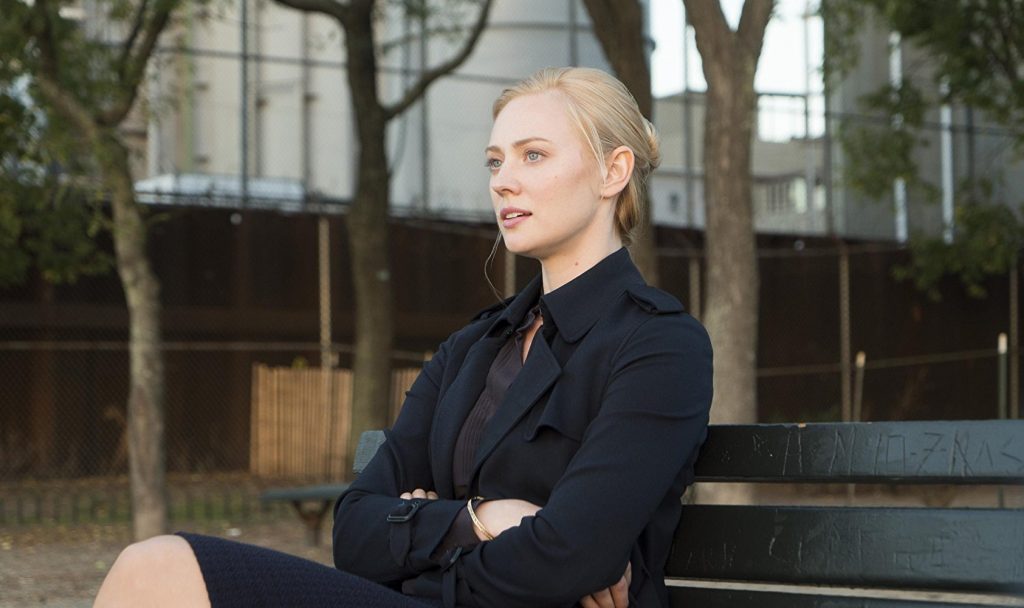 Karen’s appearances also highlighted the offensively misguided approach the show took to gun crime and control, personal safety, and the ethics of Frank’s actions. The Senator who she debates on the Second Amendment is constructed as a dodgy right-wing strawman, a blend of ‘Slimy Clueless New York Wall Street LiberalTM’, and a hypocrite who needs hired guns to protect him while he makes his anti-gun crusade. Karen, meanwhile, is meant to be one of the clearest ‘good guys’ in the entire world of The Defenders.
Karen’s appearances also highlighted the offensively misguided approach the show took to gun crime and control, personal safety, and the ethics of Frank’s actions. The Senator who she debates on the Second Amendment is constructed as a dodgy right-wing strawman, a blend of ‘Slimy Clueless New York Wall Street LiberalTM’, and a hypocrite who needs hired guns to protect him while he makes his anti-gun crusade. Karen, meanwhile, is meant to be one of the clearest ‘good guys’ in the entire world of The Defenders.
Yet here she is, acting as the NRA spokeswoman; the bad guys will always have guns, so it’s important that the good guys can defend themselves; the government and society has failed to protect us, so now we have to protect ourselves. She stops just short of full-blooded, libertarian, Alex Jones-versus-Piers Morgan-style “1776 will commence again if you try to take our firearms”, but the message was clear. And when it’s Karen who’s saying this message, it seems quite clear how we, the audience, are meant to align ourselves, especially when the opposition is that Senator, a throwaway character who only appears to be the opposition, never seen before and never seen again.
This isn’t me criticising the show because it doesn’t conform to my worldview – though there might be a part of that in there, a part that’s concerned about a show about PTSD and gun rights that seems so uniformly in favour of gun rights – but rather, that it undermines the entire value of Frank Castle as a character. Frank is the definition of an antihero, because of his methods, and because of his history. The whole point of him – not just to the audience, but to himself – is that of a kind of hyper-violent necessary outsider, who, as Frank reminds Matt Murdock, isn’t just a half-measure. He only exists because the world “needs men who are willing to make the hard call”. He does “the thing they can’t”. Matt hits them, and they “get back up”. Frank hits them, and they “stay down”.
Yet when the entire world he’s in seems constructed to either agree with him or defend his methods – if not at the start, then by the end – you lose a large part of that. What’s the point of Frank, if he’s convinced the main characters he’s right? What’s the point of Frank if a family – Micro’s family – who he stalked, used a false identity on, hid the death of Micro from, put in grave danger, and nearly had Micro killed in front of for good, can actually be sad he’s not made it to Thanksgiving dinner at the end?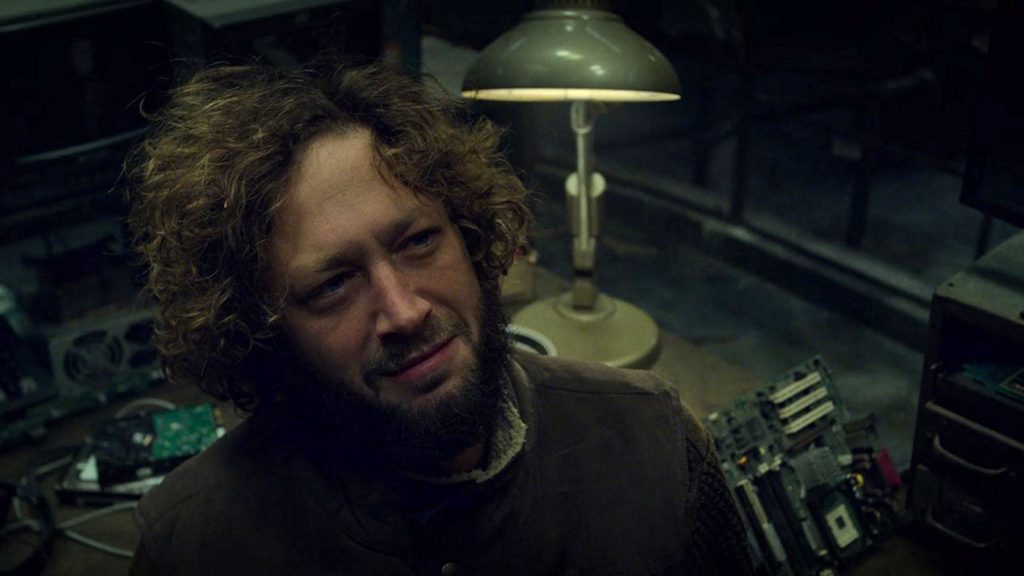 Frank’s not the only one let down by their character progression. The law enforcement representative, Dinah Medani, is a loose cannon type, who seems designed for everything to go wrong around her, so she can constantly be distressed by the fact that everything is going wrong around her. She bounces between deaths and setbacks: Frank’s murder of her boss – which leads to her promotion; Sam’s murder; her injuries, including her car being smashed side-on at high-speed by a truck; Frank’s numerous escapes; her relationship with Billy leading to his betrayal and reveal as the villain; departmental bureaucracy; even a gunshot to the head. She’s also ‘that character’ who everyone else decides to constantly and disarmingly name in every sentence for no reason. Every other line that Frank, Micro or others say to her seems to end with it, as if they’re meeting her for the first time on every occasion.
Frank’s not the only one let down by their character progression. The law enforcement representative, Dinah Medani, is a loose cannon type, who seems designed for everything to go wrong around her, so she can constantly be distressed by the fact that everything is going wrong around her. She bounces between deaths and setbacks: Frank’s murder of her boss – which leads to her promotion; Sam’s murder; her injuries, including her car being smashed side-on at high-speed by a truck; Frank’s numerous escapes; her relationship with Billy leading to his betrayal and reveal as the villain; departmental bureaucracy; even a gunshot to the head. She’s also ‘that character’ who everyone else decides to constantly and disarmingly name in every sentence for no reason. Every other line that Frank, Micro or others say to her seems to end with it, as if they’re meeting her for the first time on every occasion.
Micro – David – goes through a horrifically binary arc. He fakes his death to save his family, becomes a mysterious antagonist to Frank, becomes Frank’s ally, and is reunited with his family. He’s one thing, and then he’s the next, with little overlap or development in between. His reunion with Sarah and his kids is typical of this; one, brief, cliched ‘how could you keep this from us’ scene, and then it’s family hugs, playful card games and long-overdue sex. There’s absolutely no kind of adjustment period, on either side. It’s just a case of a jigsaw fitting back together freeze frames. One moment it’s unfinished, the next, all the pieces are perfectly in place.
Jigsaw himself meanwhile, isn’t ever really Jigsaw, at least not until the very end. Until then, he’s just plain old Billy Russo. It’s clear that he’s become Jigsaw now, in spirit if not yet in name, after Frank mirrored that comic-book confrontation by dragging Billy’s face down a mirror, permanently disfiguring a man egocentrically in love with his own appearance. His backstory is more integrated with Frank’s than in the comics; here, they’re brothers in arms, the two leading members of the Marine squad whose botched assassination is at the core of the season.
But then the show’s familiarly blunt storytelling takes hold once more, and Billy’s decent introduction – the mixture of that backstory, and his general demeanour at first – gives way to a villain whose prime motivations are a bizarre mix of money-driven private contractor, who sells out his best friend in a heartbeat just because, and personal vendetta, fuelled somehow by his completely inexplicable belief that Frank and Curtis have betrayed him, despite the opposite being true. He aids the murder of Frank’s family, shoots Curtis, helps torture Frank, and yet seems aggrieved that they see him as the enemy. It’s the sort of stupidity that’s usually self-aware, used by writers to highlight an unhinged character who they know is stupid, who is meant to be stupid, and whose stupidity is part of their downfall. But none of that is true of Billy; his stupidity is just the background noise to the character, and his downfall is just down to Frank ‘being better’ in the arbitrary playground of a climactic showdown, in which any and everything can happen, so long as it leads to the bad guy getting his comeuppance.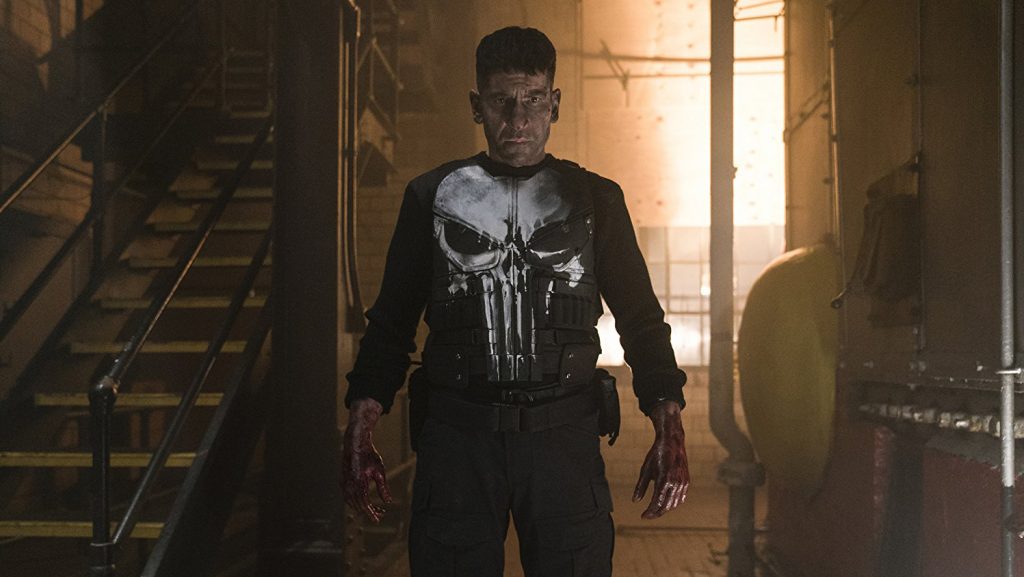 Indeed, the manner of that comeuppance speaks volumes of how the show treats the idea of justice. It’s not justice that he’s arrested, that he’s brought into the justice system. Instead, having his face dragged down the mirror is the justice. There’s no time for a more detailed exploration of David’s return to family life, or for an extended version of Frank’s veteran’s session at the end, but there is time for us to watch Billy’s face get smashed to bits over and over. This isn’t a horror movie – and the lack of truly graphic visual evidence of his disfigurement during this punishment is evidence of that, as it comes off basically like he’s got a beard made of blood more than anything particularly gory – and so the point isn’t the visuals, but instead, is the idea that this is the right kind of justice.
Indeed, the manner of that comeuppance speaks volumes of how the show treats the idea of justice. It’s not justice that he’s arrested, that he’s brought into the justice system. Instead, having his face dragged down the mirror is the justice. There’s no time for a more detailed exploration of David’s return to family life, or for an extended version of Frank’s veteran’s session at the end, but there is time for us to watch Billy’s face get smashed to bits over and over. This isn’t a horror movie – and the lack of truly graphic visual evidence of his disfigurement during this punishment is evidence of that, as it comes off basically like he’s got a beard made of blood more than anything particularly gory – and so the point isn’t the visuals, but instead, is the idea that this is the right kind of justice.
As with Karen’s gun rights stance, it’s a particularly vicious theme; here, the justice system fails, and pain, suffering and death are the justice that people like Billy deserve. Apparently, though, it’s not what people like Frank deserve – at least not more than he’s already got. The picture of him sitting down on the edge of the carousel with the two traumatised teens thanking him, as he waits for the cops, and before he quickly receives a government pardon in return for his silence, just shows the familiar double standards the show adheres to. Rather than taking the opportunity to explore the idea that violence is violence, the show, as with so many hyper-violent action heroes, separates the good violence from the bad violence, a separation wholly based on who is doing it, rather than what’s being done.
Really, the problem with The Punisher – other than the myriad issues of storytelling, plotting and character, as well as the now customary issue of length within the much-too-long thirteen episodes of the Netflix shows – is that it’s dead on arrival. It’s an origin show of sorts, yet it’s one in which that origin has been told elsewhere. Frank’s introduction on Daredevil set the character up perfectly; there was Frank’s contrast to Matt, Frank’s relationship with law enforcement, Frank’s attempts to integrate into normal life and his interactions with Karen. But in doing so, it didn’t leave much to be explored here.
What’s worse, as highlighted above, The Punisher leaves much of that introduction behind in favour of introduction 2.0. It tries to end on a question, on the idea of ‘what comes after’ leaving the Army, of ‘what’s next’ for Frank. Yet we already know that answer, because Daredevil already provided a conclusive answer, and in its simplest form, it’s the title of the show. The Punisher is what’s next, and what’s always next for Frank. The problem is that the show pretends otherwise, and creates a world in which Frank is right, and a world in which there’s no one left to tell him otherwise.
★
SaveSave
SaveSave

